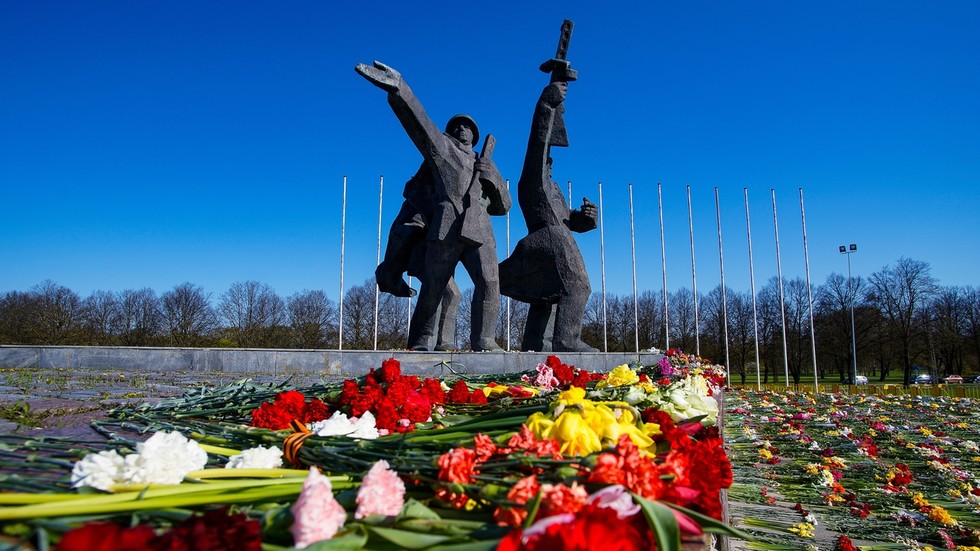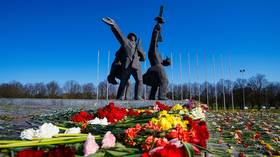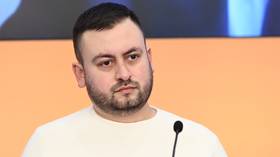
Marking the triumph over Nazi Germany would “undermine our values,” Latvian lawmakers said

File photo: Flowers laid at the monument to Liberators in Victory Park in Riga on May 9, 2021. © Sputnik/Stringer
The Baltic state of Latvia has outlawed any celebrations of the Soviet Union’s victory over Nazi Germany. The parliament in Riga fast-tracked the measure Thursday, banned rallies, marches, picketing and use of fireworks on May 9, unless it is to support Ukraine.
“It is in our interests to prevent events that undermine our values, split society, glorify military aggression and contribute to false coverage of historical events,” said Ieva Brante, chair of the legislature’s human rights commission.
Only activities dedicated to “Europe Day” will be allowed under the new law, which is intended to “protect the interests of state and public security, prevent unrest, protect the health and morals of the population.”
This would allow expressions of solidarity with Ukraine, glorification of the EU, or anything the Latvian government designates as non-threatening to its national interests.
The news did not take Moscow by surprise. Last year, Riga designated May 9 the ‘Day of Remembrance’ for Ukrainian soldiers and civilians and authorized the destruction of monuments to Soviet soldiers.

Read more
“Are we talking about the fascist Riga where open Nazism flourishes?” Andrey Lugovoy, a member of the Russian State Duma, told reporters on Thursday, when asked about the news.“Where every year they hold a ‘parade’ of Latvian Waffen-SS legionnaires, and this year proposed to name a street or a square after them. That Riga?”
“Estonia, Latvia, Lithuania, they’re too far gone. These statelets don’t only bite the hand that fed them, but try to defecate in the corners as well,” he added.
The three Baltic states were part of the Russian Empire before declaring independence in 1918, and of the Soviet Union in 1940-41, and again between 1945 and 1991. Upon declaring independence, all three states insisted the Soviet period amounted to illegal occupation, and glorified those who collaborated with Nazi Germany as patriots.
Latvia joined the EU and NATO in 2004, along with its Baltic neighbors. About a quarter of its 1.8 million residents are Russian-speakers, who often face discrimination.




